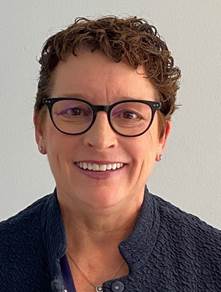- Bone Health
- Immunology
- Hematology
- Respiratory
- Dermatology
- Diabetes
- Gastroenterology
- Neurology
- Oncology
- Ophthalmology
- Rare Disease
- Rheumatology
The Biosimilars Forum Announces Julie Reed as New Executive Director
The non-profit organization dedicated to the advancement of biosimilars has appointed Cofounder and President Juliana (Julie) M. Reed, as the new executive director. Reed shared some of her goals for the Biosimilars Forum in an interview with The Center for Biosimilars®.
The Biosimilars Forum, a non-profit organization dedicated to advancing biosimilars and improving adoption rates, announced the appointment of Juliana (Julie) M. Reed as the new executive director.
Juliana (Julie) M. Reed

Reed served as the president of the organization for over 8 years and was an original cofounder. During her tenure as president of the Forum, Reed oversaw advocacy and awareness initiatives to increase access and adoption of biosimilars in the United States.
“I been there from the beginning, not just in biosimilars in the US lobbying to get the [Biologics Price Competition and Innovation Act] passed,” said Reed in an interview with The Center for Biosimilars®. "I've also worked around the world helping to develop the pathways and launch biosimilars in Europe and Japan and everywhere where nobody knew what a biosimilar was….It's a passion of mine and it's been an incredible amount of fun. This position is such an honor."
At Pfizer, she served as the vice president and global corporate affairs lead of Immunology, Inflammation and Biosimilars. She previously served as senior vice president of government affairs at Coherus and vice president of global government affairs at Hospira.
“Juliana understands that biosimilars play a critical role in lowering drug prices for all Americans….Juliana is the ideal leader for the Biosimilars Forum, and she will help stakeholders across the healthcare spectrum understand the importance of timely access to biosimilars,” said Tiffany Fletcher, vice president of the Biosimilars Forum and head of global access policy at Viatris, in a statement.
Reed's Outlook on Biosimilars in 2022
Reed expressed that improving access was going to be her main goal in 2022 in her new role, saying that barriers to access, including misinformation, lack of resources for the FDA, and lack of parity on drug formularies, need to be addressed to create greater uptake of biosimilars in the United States.
Regulatory initiatives that Reed will be working toward include getting the HHS to implement shared savings or $0 copay policies, following along with President Biden’s executive order as well as ensuring that the FDA has a strong robust biosimilars programs.
“Making sure the FDA has adequate resources, has the ability to focus on biosimilars, has the ability to do inspections, even during a pandemic, and they have some great ideas, but we would love to see the FDA implement that because a delay in an inspection, results in a delay in approval,” Reed said.
Additionally, ensuring that payers apply parity when making formulary decisions will be critical, according to Reed, because not only will it eliminate the need for exclusive agreements with drug manufacturers, but it will restore choice to physicians and patients on what product to use while also encouraging more competition, which will ultimately lower prices.
Other endeavors Reed said that the Forum will focus on in 2022 include working with the FDA and the Federal Trade Commission to inform and aid them in combatting misinformation and evolving the requirements needed for approval.
“The science and the requirements for development of a biosimilar have evolved. And we want to make sure we in the US are evolving as well," Reed explained. "Our regulatory science program is going to help define interchangeability. So, we want to move forward on that but also move forward on how we can evolve the science and the development requirements because if we can lower the development requirements, we're going to lower the cost of development, and so biosimilars will be at an even lower costs when they come to market."
Newsletter
Where clinical, regulatory, and economic perspectives converge—sign up for Center for Biosimilars® emails to get expert insights on emerging treatment paradigms, biosimilar policy, and real-world outcomes that shape patient care.
